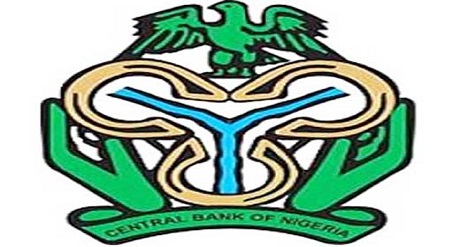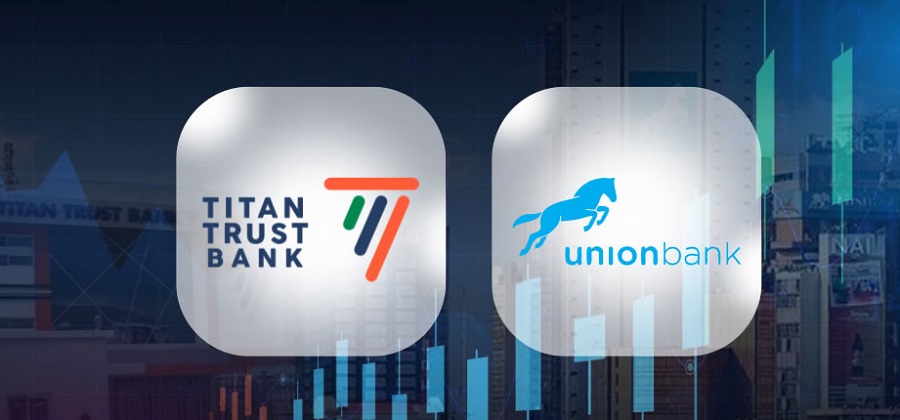E-Financial
Banks Race to Comply with PCI DSS Version 3

Few months after money deposit banks in the country completed certification of Payment Card Industry Data Security Standards (PCI DSS) version 2, they are now faced with new task of complying with the next upgrade which is version 3.
PCIDSS is a framework for ensuring that critical information assets are protected from unauthorized access, use, disclosure, disruption, modification, perusal, inspection, recording or destruction.
The major global payment brands require that every entity including financial institutions as well as merchants and service providers store, process, or transmit payment card data, in every channel including catalogue and online retailers as well as brick-and-mortar businesses — must be in compliance with the PCI Data Security Standard (PCI DSS).
Nigeria CommunicationsWeek investigations revealed that PCI DSS version 2 the one Central Bank of Nigeria (CBN) mandated banks to comply with by November 30, 2014, ended in December last year, and version 3 was released in January this year.
Some Nigerian banks have already commenced efforts towards compliance to this new version.
Oluseyi Akindeinde, chief technical officer, Digital Encode, a company that assist banks and other organizations to achieve PCI DSS certification, said, PCI DSS Version 3.0 is just an update to the already existing PCI DSS version 2.
“It was brought about by the ever evolving and changing sphere of information security. It has updated a few of the objectives and added new controls in line with the current landscape of payment systems threats and risks. There are quite a number of advantages. One now is that it makes application security testing a very key component of the overall process. Other key advantages include systems component inventory, third party and vendor relationships, advanced persistent threats and malware as well as physical access and point of sale security,” he stated.
He added that, it will be highly beneficial for all banks to get certified to this new standard.
“The PCI certification audit is a yearly process and as such it only makes sense to make adjustments where needed as it relates to the new version,” he said.
Ahmed Adesanya, IT Security and Connectivity consultant, said that version 3 compliance extends to merchants, payment application providers, communications service providers as well as cloud service providers.
He said that the new version has 12 requirements and over 200 control processes.
“Banks need to show a report of compliance, covering all the processes of security control that applied to them. If any bank doesn’t meet up with this version 3 compliance, payment card brands such as Visa and MasterCard will sanction such bank,” he noted.
He added that such sanctions include fine of $450 per card bridge recorded by the bank that did not comply to this version 3.
He pointed out that the tedious process of compliance to PCI DSS has led to some banks to outsource some of the process to cloud services providers that have met the requirement.
E-Financial
Union Bank of Nigeria Completes Merger with Titan Trust Bank

Union Bank of Nigeria, one of the nation’s longest standing financial institutions, today announced the successful completion of its merger with Titan Trust Bank Limited, following final approval from the Central Bank of Nigeria (CBN).

This milestone, according to a statement from Mrs. Olufunmilola Aluko, head, Brand and Marketing Officer, Union Bank concluded a process that began with the signing of a Share Sale Agreement in 2021 and positions.
Union Bank as an even stronger force within Nigeria’s financial services sector. Under the terms of the merger, Union Bank has fully absorbed Titan Trust Bank’s operatons and assets.
The combined institution will continue to operate under the Union Bank brand, while Titan Trust Bank ceases to exist as a separate entity.
With an expanded footprint of over 293 service centres and 937 ATMs nationwide, supported by strengthened digital channels, Union Bank is poised to deliver enhanced value across retail, SME, and corporate segments.
The merger combines Union Bank’s trusted heritage with Titan Trust’s agility and innovation, creating a platform for sustainable growth and broader financial inclusion.
Mrs. Yetunde Oni, managing director and chief executive officer, Union Bank, described the development as “a pivotal moment in our 108-year journey, and a launchpad for delivering greater value to our customers. By blending stability with innovation, we are better positioned to meet the evolving needs of Nigerians and to be their most trusted financial partner.”
Also speaking on the transaction, Mr. Bayo Adeleke, chairman of the Board of Directors, Union Bank, said: “This is a new era of growth, collaboration, and shared prosperity. By bringing together the strengths of both institutions, we are committed to creating lasting value for our customers, shareholders, and communities while advancing Nigeria’s financial inclusion agenda.” The Bank has assured customers that there will be no disruption to existing services.
Account details remain unchanged, and customers will continue to access a full suite of products and services seamlessly, with an accelerated push towards enhanced digital solutions.
This strategic consolidation strengthens Union Bank’s market position, unlocks operational synergies, and underscores its ambition to deliver a modern, robust, and inclusive banking experience for all.
E-Financial
AMMBAN Faults CBN’s 60-day Deadline on PoS Geo-Tagging

The Association of Mobile Money and Bank Agents in Nigeria (AMMBAN) has expressed concern over the Central Bank of Nigeria’s (CBN ) 60-day deadline for the mandatory geo-tagging of Point of Sale (PoS) and other payment terminals in the country.

Dr. Obioha Oti, Acting National President of AMMBAN, said that while the association fully supports and had foreknowledge of the apex bank’s plan to ensure that all existing payment terminals in the country are geo-tagged, the 60-day deadline set for the exercise was too short to allow for its effective implementation.
He cited the large number of PoS terminals in the market which, according to him, do not meet the CBN’s new standards as well as the limited capacity of many Mobile Money Operators (MMOs), as some of the factors that may hinder the implementation of the directive.
Speaking on a Channels TV business programme, also disclosed that while about 50 per cent of the estimated 10 million PoS terminals in the market, are active, a significant number of them do not meet the new standards and would either have to be withdrawn or upgraded.
According to him, the process of withdrawing or upgrading such terminals within the 60-day window might cause severe disruption to the financial system especially as the effects of the naira redesign crisis have not worn off.
Dr Oti said: “We, as the players at the grassroots, welcome the directive. It will help to reduce fraud, kidnapping and other criminal activities. The challenge might be with the implementation; I have a problem with the 60-day window. We all remember what happened during the implementation of the naira redesign programme.”
E-Financial
Diaspora Inflows Triple to $600M Monthly, Set to Hit $1B Next Year – CBN

Nigeria’s economy is receiving a major boost from its diaspora community, with remittance inflows tripling to $600 million monthly over the past two months, according to the Governor of the Central Bank of Nigeria (CBN), Olayemi Cardoso.

Speaking at the Delta State–Brazil Business and Investment Roundtable in São Paulo, Cardoso attributed the surge to a more competitive exchange rate and improved remittance channels, which have made it easier and more attractive for Nigerians abroad to send money home through official platforms.
“Our exchange rate is becoming a lot more competitive. Those who previously sought other channels to send their money back home no longer have to do so,” Cardoso said.
The CBN governor revealed that remittance inflows had previously hovered around $200 million monthly but have now climbed to $600 million—a 200 percent increase.
He projected that the figure could reach $1 billion per month by 2026, positioning diaspora contributions as a cornerstone of Nigeria’s foreign exchange strategy.
Cardoso emphasized that the rising inflows are helping to diversify Nigeria’s foreign exchange portfolio and reduce its dependence on oil revenues, which have long been the backbone of the country’s economy.
“When we started considering diaspora flows as a source of diversifying our foreign exchange earnings, people laughed,” he said.
“But we started at $200 million every month. In the last two months, we have reached $600 million per month, and by next year, we anticipate at least $1 billion from our diaspora community.”
The roundtable event, which brought together Nigerian and Brazilian business leaders, focused on strengthening bilateral trade and investment.
Cardoso’s remarks underscored the growing importance of digital financial infrastructure and policy reforms in unlocking Nigeria’s economic potential.
Experts say the remittance boom could have far-reaching implications for Nigeria’s balance of payments, exchange rate stability, and household income levels—especially as more Nigerians abroad opt for formal channels to support families and invest in local ventures.
As the country continues to grapple with inflation and currency volatility, the CBN’s renewed focus on diaspora inflows may offer a lifeline—and a path toward a more resilient economy.

 E-Business3 days ago
E-Business3 days agoFG Shuts Down over 13.5m Social Media Accounts for Alleged Policy Violations

 E-Financial3 days ago
E-Financial3 days agoFirstBank’s ₦1 Trillion Digital Lending Milestone: A New Era of Inclusive Finance

 E-Financial3 days ago
E-Financial3 days agoGITEX Nigeria 2025: MTN and Global Tech Titans Unite to Accelerate Africa’s Digital Future

 Telecom3 days ago
Telecom3 days agoNCC Unveils Cybersecurity Blueprint to Fortify Nigeria’s Telecom Backbone

 Telecom3 days ago
Telecom3 days agoGlo Commemorates Two Decades of Innovation, Impact @ 22

 E-Business3 days ago
E-Business3 days agoNigeria to Launch NGDX, Unified Data Exchange by End of This Year

 News3 days ago
News3 days agoNigerians to Pay $80 Duty on US-Bound Parcels — NIPOST

 E-Financial3 days ago
E-Financial3 days agoDiaspora Inflows Triple to $600M Monthly, Set to Hit $1B Next Year – CBN















